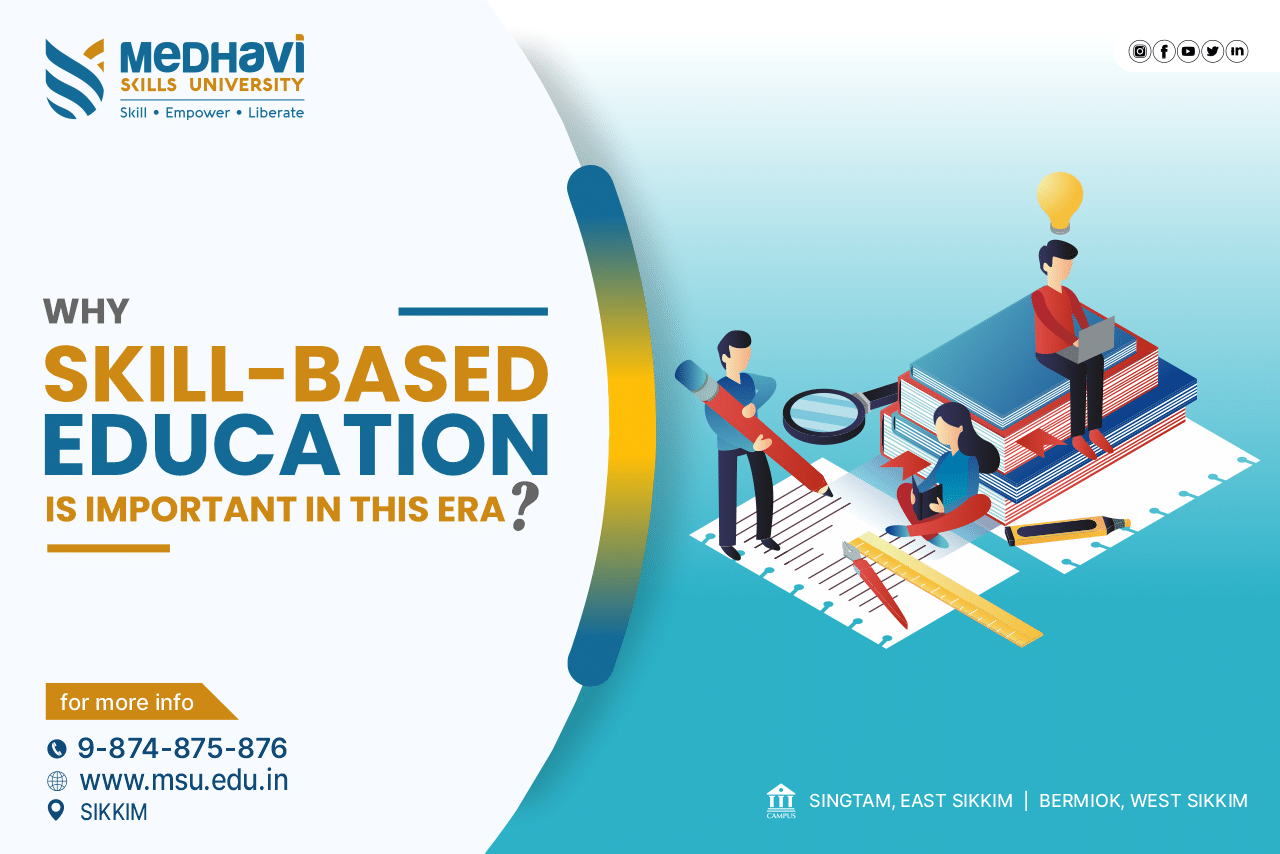Why Skill-Based Education is Important in This Era.
In today’s rapidly evolving world, skill-based education has become crucial for individuals to thrive in their personal and professional lives. As traditional education focuses more on theoretical knowledge, skill-based education equips individuals with practical skills that are directly applicable in real-world scenarios. This article explores the importance of skill-based education in this era and highlights how it can empower individuals to succeed in a competitive and ever-changing landscape.

The Significance of Skill-Based Education
Skill-based education offers several advantages over traditional academic approaches. By emphasizing practical skills, it enables individuals to develop a range of competencies that are highly sought after by employers and valuable in various aspects of life. Let’s delve into some of the key reasons why skill-based education is important in this era:
1. Bridging the Gap between Education and Employment
One of the primary reasons skill-based education is important is its ability to bridge the gap between education and employment. In traditional education, there is often a mismatch between the skills acquired and the skills required by the job market. Skill-based education addresses this issue by focusing on industry-relevant skills, ensuring that graduates are better prepared to enter the workforce and contribute effectively from day one.
2. Enhancing Employability
Employers today value practical skills and hands-on experience more than ever. Skill-based education equips individuals with the necessary expertise and competencies to excel in their chosen fields. By developing job-specific skills, such as coding, data analysis, project management, and communication, individuals can significantly enhance their employability and stand out in a crowded job market.
3. Adapting to Technological Advancements
In this era of rapid technological advancements, skill-based education plays a vital role in preparing individuals for the digital age. As automation and artificial intelligence continue to reshape industries, acquiring skills that are in demand can safeguard individuals against job displacement. Skill-based education focuses on areas like digital literacy, coding, data science, and cybersecurity, enabling individuals to stay relevant and adapt to evolving technologies.
4. Promoting Lifelong Learning
The importance of continuous learning cannot be overstated in an era of constant change. Skill-based education instills a mindset of lifelong learning by encouraging individuals to constantly update their skills and stay abreast of emerging trends. This adaptability and willingness to learn are essential for individuals to thrive in dynamic environments and seize new opportunities as they arise.
5. Fostering Entrepreneurship and Innovation
Skill-based education nurtures an entrepreneurial spirit and fosters innovation. By providing individuals with the necessary skills to identify gaps in the market, solve problems, and create value, it empowers them to start their own businesses or contribute to entrepreneurial endeavors. The practical skills acquired through skill-based education serve as a strong foundation for individuals to bring their innovative ideas to life and make a positive impact.
6. Promoting Personal Growth and Self-Empowerment
Beyond professional success, skill-based education promotes personal growth and self-empowerment. By developing a wide range of practical skills, individuals gain confidence in their abilities and become more self-reliant. Skill-based education encourages individuals to explore their passions, cultivate their talents, and pursue fulfilling careers aligned with their interests and aspirations.
FAQs about Skill-Based Education
Q1: What are some examples of skill-based education?
Skill-based education encompasses a wide range of disciplines and practical skills. Some examples include coding and programming, digital marketing, graphic design, project management, culinary arts, financial analysis, and foreign language proficiency.
Q2: How does skill-based education differ from traditional education?
Traditional education primarily focuses on theoretical knowledge, whereas skill-based education emphasizes practical skills that are directly applicable in real-world scenarios. Skill-based education is often more hands-on, industry-relevant, and geared towards developing employable competencies.
Q3: Can skill-based education be pursued alongside traditional education?
Yes, skill-based education can be pursued alongside traditional education. Many individuals opt for skill-based courses, workshops, or online platforms to supplement their academic education and acquire practical skills that enhance their employability and broaden their knowledge base.
Q4: Are skill-based certifications valuable in the job market?
Yes, skill-based certifications hold significant value in the job market. Employers recognize the practical relevance of these certifications and view them as a testament to an individual’s ability to apply skills in a professional setting. Skill-based certifications can provide a competitive edge and open doors to rewarding career opportunities.
Q5: How can skill-based education contribute to personal development?
Skill-based education goes beyond professional development and contributes to personal growth. By acquiring practical skills, individuals gain confidence, expand their horizons, and unlock their potential. Skill-based education encourages individuals to explore new interests, develop a diverse skill set, and pursue a fulfilling and well-rounded life.
Q6: Is skill-based education suitable for all age groups?
Yes, skill-based education is suitable for individuals of all age groups. Whether you’re a student, a working professional, or someone seeking a career change, skill-based education offers valuable opportunities to acquire new skills, enhance existing ones, and adapt to the changing demands of the modern world.
Conclusion
In this era of rapid change and technological advancements, skill-based education is more important than ever. It equips individuals with practical skills, enhances employability, fosters adaptability, promotes personal growth, and prepares individuals to succeed in a competitive landscape. By embracing skill-based education, individuals can unlock their full potential, pursue rewarding careers, and thrive in an ever-evolving world.


